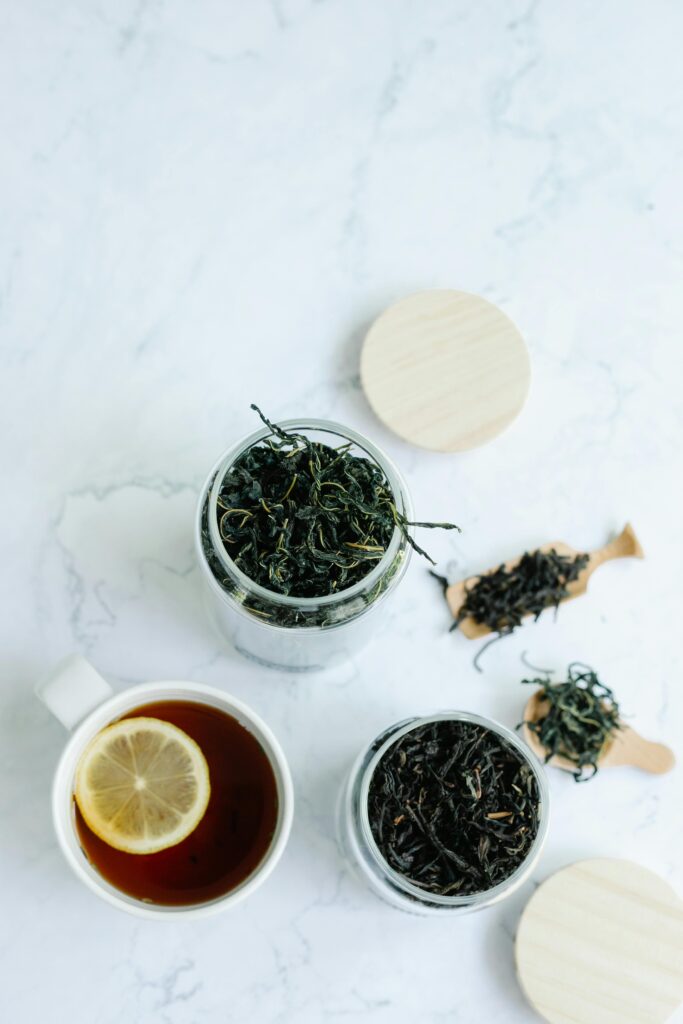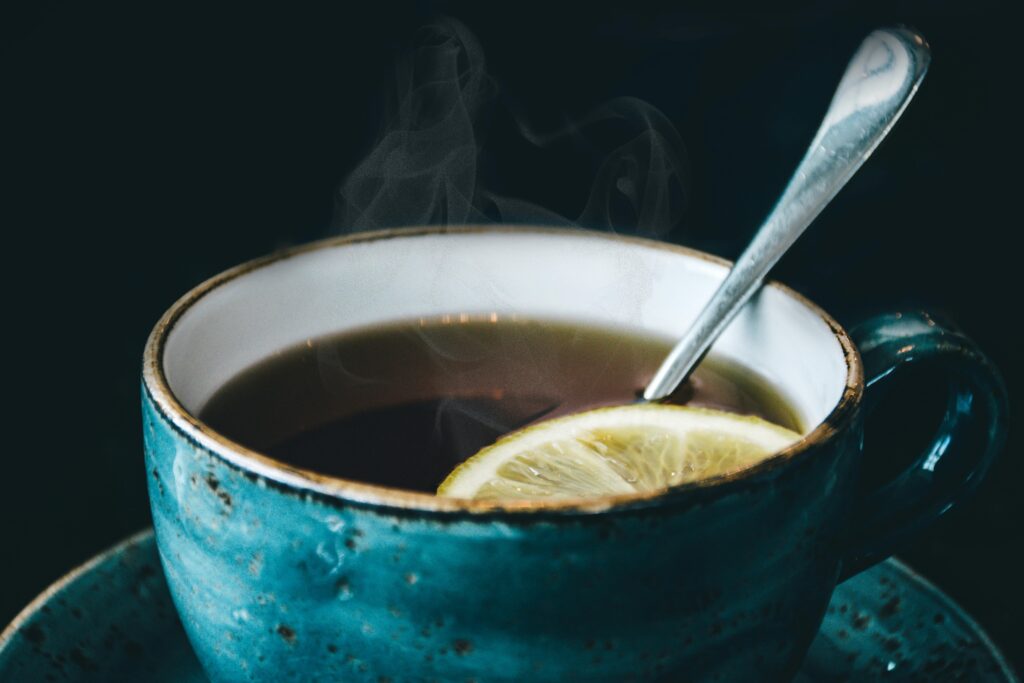If you’re searching for a calming herbal drink that soothes the mind and body, lemon balm tea might be the answer. Known for its gentle citrus scent and relaxing properties, this herbal tea has been cherished for centuries as a natural remedy for stress, sleeplessness, and digestive discomfort. Whether you want to unwind after a long day or boost your overall wellness, lemon balm tea is a delicious and effective choice.
What is Lemon Balm?
Origin and History of Lemon Balm
Lemon balm (Melissa officinalis) is a perennial herb in the mint family. Native to Southern Europe and the Mediterranean, it has been used for over 2,000 years in traditional medicine. Ancient Greeks and Romans brewed it to uplift the spirit, while medieval herbalists praised its ability to calm the heart and nerves.
Nutritional Profile of Lemon Balm
Lemon balm contains:
- Flavonoids (antioxidants)
- Rosmarinic acid (anti-inflammatory compound)
- Essential oils (citral, citronellal, and linalool)
- Small amounts of vitamins and minerals

Health Benefits of Lemon Balm Tea
Reduces Stress and Anxiety
Lemon balm tea is widely recognized as a natural anxiolytic. Compounds in the herb interact with neurotransmitters like GABA, promoting relaxation and reducing nervousness.
Improves Sleep Quality
Drinking a warm cup of lemon balm tea before bed may help you fall asleep faster and enjoy deeper rest. It’s often blended with chamomile or valerian for stronger effects.
Supports Digestive Health
Traditionally, lemon balm tea has been used to ease indigestion, bloating, and nausea. Its mild carminative properties help relax the stomach muscles.
Enhances Cognitive Function
Some studies suggest lemon balm can improve memory, focus, and mental clarity. It’s a great alternative to caffeinated drinks when you need calm concentration.
Boosts Immunity and Fights Inflammation
The antioxidants in lemon balm tea support the immune system, fight oxidative stress, and reduce inflammation in the body.
Aids in Menstrual Relief and Hormonal Balance
Women often turn to lemon balm tea for relief from menstrual cramps, irritability, and hormonal imbalances.
How to Make Lemon Balm Tea at Home
Fresh vs. Dried Lemon Balm Leaves
- Fresh leaves: Offer a bright, citrusy flavor and are best during the growing season.
- Dried leaves: Convenient for year-round use, with a more concentrated flavor.
Step-by-Step Recipe for Lemon Balm Tea
Ingredients:
- 1–2 teaspoons of dried lemon balm leaves (or 4–6 fresh leaves)
- 1 cup of hot water (just below boiling)
- Honey or lemon (optional)
Instructions:
- Boil water and let it cool slightly.
- Place the leaves in a tea infuser or directly in a cup.
- Pour hot water over the leaves.
- Steep for 5–7 minutes.
- Strain (if using loose leaves) and enjoy.
Flavor Variations and Blends
- With Chamomile: For deep relaxation and better sleep.
- With Peppermint: To refresh digestion and add cooling flavor.
- With Lavender: For stress relief and calming aroma.
Best Times to Drink Lemon Balm Tea
- Morning: As a gentle, caffeine-free start to the day.
- Afternoon: To reduce midday stress and maintain focus.
- Evening: To promote restful sleep and relaxation.
Safety, Side Effects, and Precautions
Possible Interactions with Medications
Lemon balm may interact with sedatives, thyroid medications, or antidepressants. Always consult your doctor before regular use.
Who Should Avoid Lemon Balm Tea
- Pregnant or breastfeeding women (unless approved by a doctor)
- People with thyroid disorders
- Those scheduled for surgery (stop use 2 weeks prior)
FAQs About Lemon Balm Tea
Q1: Can I drink lemon balm tea daily?
Yes, 1–3 cups daily is generally safe for most people.
Q2: Does lemon balm tea make you sleepy?
It promotes relaxation and may cause mild drowsiness, especially in higher amounts.
Q3: Can I grow lemon balm at home?
Absolutely! It’s an easy-to-grow herb in gardens and pots.
Q4: Is lemon balm tea safe for children?
In small amounts, yes, but consult a pediatrician before regular use.
Q5: What does lemon balm tea taste like?
It has a mild lemony flavor with subtle minty undertones.
Q6: Can I drink it with other herbal teas?
Yes, it pairs beautifully with chamomile, lavender, and peppermint.
read more:
- Herbal vs. CBD Teas: Natural Ways to Ease Anxiety
- Why Tea Rituals Help Reduce Stress and Anxiety
- Valerian Root Tea for Sleep: Natural Stress Relief
- Can Herbal Teas Replace Anxiety Meds? Science Explains
- Herbal Teas That Help Anxiety: A Comparison
- Passionflower Tea for Anxiety: A Natural Solution
- tea for anxiety
- best tea for sleep
- Make Your Own Anti-Anxiety Tea Blend for Instant Calm
Conclusion: A Calming Herbal Drink for Daily Wellness
Lemon balm tea is more than just a soothing beverage—it’s a time-tested herbal remedy that promotes relaxation, better sleep, digestion, and overall well-being. With its gentle citrus aroma and calming effects, this herbal tea can easily become a part of your daily self-care routine.
Whether enjoyed on its own or blended with other herbs, lemon balm tea offers a natural, delicious way to care for both mind and body.
For reliable insights on lemon balm and other herbal remedies, explore resources like the National Center for Complementary and Integrative Health (NCCIH).
